When the scorching heat of summer hits, your car’s air conditioning system becomes more than just a luxury—it’s a crucial lifeline for comfort and safety on the road. But like any mechanical system, your car’s AC can start to show signs of wear and tear long before it completely fails. Recognizing these early warning signals can save you from sweltering drives and costly repairs down the line. In this article, we’ll explore the common signs that indicate your car’s AC might be in need of repair, helping you stay cool and confident no matter the temperature outside.
Table of Contents
- Common Symptoms Indicating Your Car’s AC is Struggling
- Understanding the Impact of Unusual Noises on AC Performance
- Why Weak Airflow Signals a Deeper Problem
- The Importance of Checking Refrigerant Levels Regularly
- Detecting Foul Odors and Their Underlying Causes
- When to Seek Professional Diagnostic and Repair Services
- Q&A
- The Conclusion
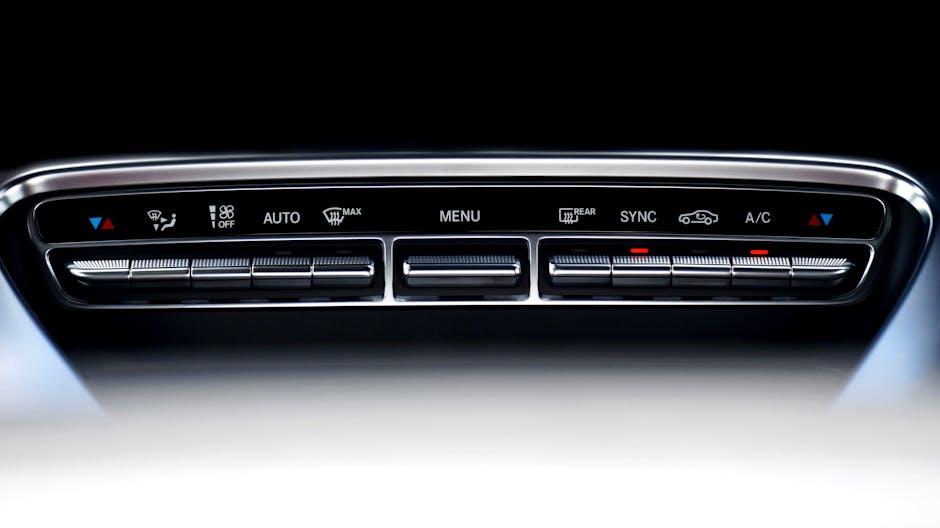
Common Symptoms Indicating Your Car’s AC is Struggling
When your car’s air conditioning system starts to falter, it rarely goes unnoticed. One of the first giveaways is when the cool air rapidly loses its chill or feels barely distinguishable from the outside temperature. You might also detect unusual smells—often musty or chemical—that hint at mold growth or refrigerant leaks inside the system. Alongside these sensory cues, strange noises like hissing or rattling can indicate internal issues within the compressor or ductwork.
Additional signs that your AC is struggling include:
- Weak airflow even when the fan is at its highest setting
- Water pooling inside the car due to clogged drainage tubes
- Fluctuating temperature that shifts from cold to warm intermittently
| Symptom | Possible Cause | Suggested Action |
|---|---|---|
| Warm Air Blowing | Low Refrigerant Level | Recharge Refrigerant |
| Hissing Noise | Refrigerant Leak | Inspect and Repair Leak |
| Foul Odor | Mold Growth | Clean or Replace Cabin Filter |
| Weak Airflow | Clogged Air Filter or Fan Issue | Check Air Filter and Fan |

Understanding the Impact of Unusual Noises on AC Performance
When your car’s AC starts producing strange sounds, it’s more than just an annoying distraction; it’s a clear sign that something might be off with the system’s internal components. These unusual noises often indicate issues such as a failing compressor, loose belts, or debris caught in the blower fan. Ignoring these sounds can lead to more serious mechanical failures, reducing the AC’s efficiency and potentially increasing repair costs. Paying attention to these auditory clues allows you to address problems early and maintain a cool, comfortable ride.
Common unusual AC noises and their potential causes include:
- Squealing or screeching: Often due to worn-out belts or a failing compressor clutch.
- Grinding or rattling: Could be debris caught in the blower motor or damaged internal parts.
- Hissing: Indicates refrigerant leaks or issues with the AC system’s pressure.
| Noise Type | Possible Cause | Recommended Action |
|---|---|---|
| Squealing | Worn belts or compressor clutch | Inspect and replace belts; check compressor |
| Grinding | Blower motor debris or damage | Clean blower motor; repair or replace damaged parts |
| Hissing | Refrigerant leak | Locate leak; recharge refrigerant; seal leaks |
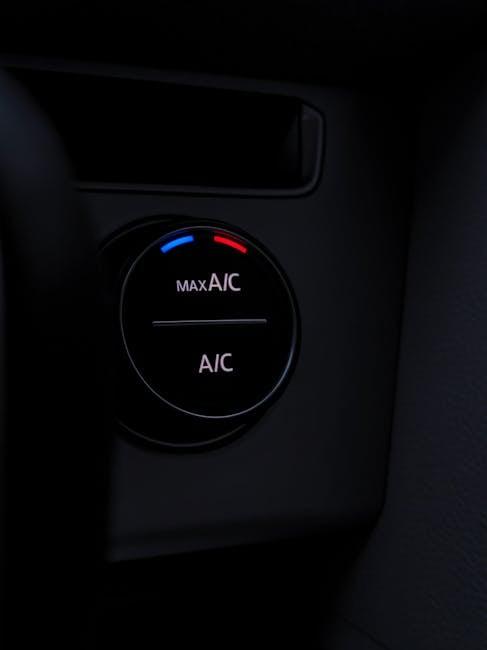
Why Weak Airflow Signals a Deeper Problem
When your car’s AC doesn’t blow as forcefully as it used to, it’s more than just a minor inconvenience—it’s a red flag indicating there might be an underlying issue in the system. Often, weak airflow isn’t caused by a singular problem but is instead a symptom of multiple components working below par. From clogged cabin air filters to malfunctioning blower motors, each element in the airflow chain plays a vital role in ensuring you get that refreshing blast. Ignoring this sign can lead to further damage, escalating repair costs and an uncomfortable driving experience.
Several factors can cause inadequate airflow, and identifying which one is at fault can save both time and money. Here’s what usually lurks behind a feeble breeze:
- Clogged Cabin Air Filter: Dust, pollen, and debris can build up, restricting the air entering your car’s interior.
- Blower Motor Issues: A failing motor won’t deliver the required force to push air through the vents.
- Blocked Vents or Ducts: Foreign objects or accumulated grime can obstruct airflow paths.
- Refrigerant Levels: Low levels can also affect system pressure, indirectly influencing airflow performance.
| Cause | Impact on Airflow | Repair Tip |
|---|---|---|
| Dirty Air Filter | Reduced air volume | Replace or clean regularly |
| Blower Motor Failure | Weak or no airflow | Inspect and replace if needed |
| Vent Blockage | Uneven airflow distribution | Clear debris and check ducts |
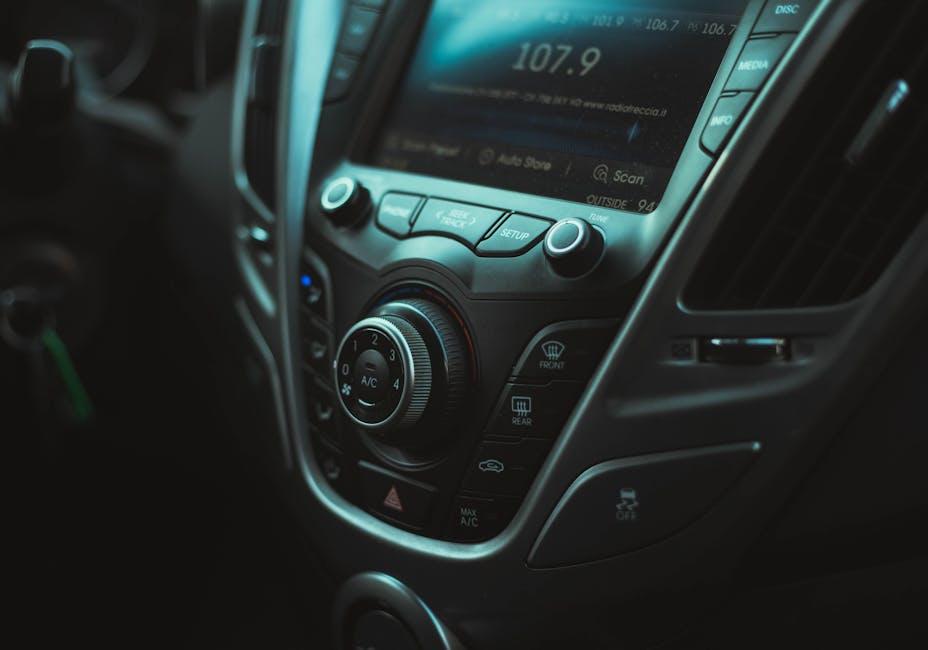
The Importance of Checking Refrigerant Levels Regularly
Maintaining the optimal level of refrigerant in your car’s AC system is crucial not only for comfort but also for the longevity of the unit. Low refrigerant levels can cause the compressor to overheat and fail prematurely, leading to costly repairs. Additionally, an insufficient amount of refrigerant means the air conditioning won’t blow as cold as it should, leaving you stuck in the heat without relief. Keeping an eye on these levels ensures that the system runs efficiently and uses fuel economically.
Regular checks also help identify leaks early before they escalate into bigger problems. Signs like uneven cooling or hissing noises could indicate that refrigerant has escaped, compromising the AC’s performance. Below is a quick reference table to help you understand common symptoms linked to refrigerant issues:
| Symptom | Possible Cause | Recommended Action |
|---|---|---|
| Warm Air from Vents | Low Refrigerant Level | Recharge Refrigerant |
| Hissing Sound | Leak in AC System | Professional Leak Repair |
| Compressor Cycles Frequently | Insufficient Refrigerant | System Inspection & Recharge |
- Prolongs AC life: Prevents undue wear on components.
- Ensures comfort: Guarantees cold, refreshing air output.
- Prevents damage: Avoids costly compressor replacements.
- Detects leaks early: Helps avoid environmental harm and higher repair bills.
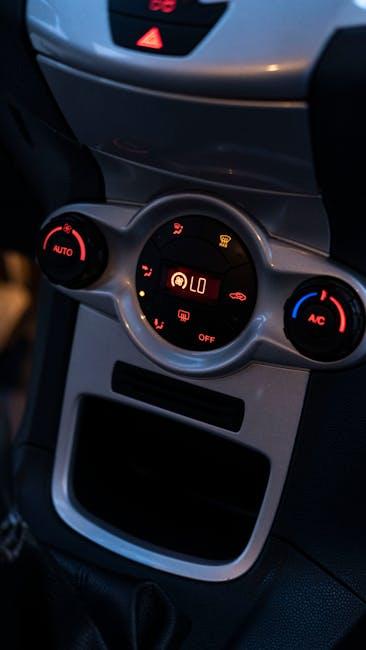
Detecting Foul Odors and Their Underlying Causes
When your car’s AC emits unpleasant smells, it’s a clear signal something isn’t right beneath the surface. Often, a musty or moldy odor points to moisture trapped within the system, creating an ideal environment for mold and mildew to flourish inside the evaporator core or ducts. Another common culprit is burnt smells, which could indicate electrical issues or the AC compressor overheating. If you notice a rotten egg or sulfur scent, it might be due to a leaking battery or coolant system problems, both requiring urgent attention. These odors are more than just nuisances; they can compromise your health and the efficiency of your vehicle’s AC system.
To better understand the range of foul odors and their possible sources, refer to the table below:
| Odor Type | Possible Cause | Symptoms |
|---|---|---|
| Musty/Moldy | Moisture, mold growth | Foggy windows, damp smell |
| Burnt | Electrical fault, overheated compressor | Reduced cooling, AC shuts off |
| Rotten Egg | Battery leak, coolant leak | Corrosion, engine warning lights |
| Gasoline | Fuel leak near AC system | Strong fuel smell, poor air quality |
If you detect any of these odors, it’s crucial to address them promptly. Regular AC maintenance, including system inspections and cleaning, can prevent these issues from developing and keep your car’s interior fresh and safe.

When to Seek Professional Diagnostic and Repair Services
When your vehicle’s AC starts showing persistent issues, it’s essential to recognize the moments that go beyond simple troubleshooting. If you notice that your AC system blows warm air despite setting it to the coldest temperature, or if strange noises accompany its operation, these are clear indicators that professional evaluation is needed. Additionally, erratic airflow, unpleasant smells, or frequent cycling on and off can signal deeper problems within the compressor, refrigerant leaks, or electrical components that require expert attention.
Rather than DIY attempts that could inadvertently escalate the damage, entrusting the diagnosis and repair to skilled technicians ensures precise handling of complex AC systems. Here’s a quick checklist of situations warranting professional service:
- AC blowing warm or hot air consistently
- Reduction in airflow strength
- Unusual hissing or grinding noises during operation
- Foul or moldy odors emerging from vents
- Visible leaks or accumulation of moisture under the car
Q&A
Q: How can I tell if my car’s AC system is struggling to cool the air properly?
A: If your AC blows warm or only slightly cool air despite being on full blast, it’s often a sign of low refrigerant or a failing compressor. The chill factor dropping is the first hint your AC needs a professional checkup.
Q: What unusual noises coming from the dashboard signal AC trouble?
A: Strange sounds like grinding, squealing, or rattling when you turn on the AC can indicate worn-out components such as the compressor clutch or a loose belt. Your car’s AC isn’t supposed to put on a concert, so noises mean it’s time to inspect.
Q: Why does my car’s AC smell funky or musty when I turn it on?
A: A weird odor usually points to mold or mildew buildup inside the AC system, often from clogged drains or dirty filters. This not only smells bad but also impacts air quality—another reason to get a system cleaning or repair.
Q: What does it mean if the AC only works intermittently or shuts off randomly?
A: Intermittent cooling can be caused by electrical issues, a faulty thermostat, or a failing compressor relay. When your AC plays hide and seek with cooling, it’s a clear sign something inside isn’t playing fair.
Q: Are there any physical signs I can spot under the hood related to AC problems?
A: Yes! Look for oily residue or leaks around AC hoses and connections. Refrigerant leaks leave telltale marks and cause the system to lose pressure, leading to poor cooling performance.
Q: Can a drop in fuel efficiency indicate AC problems?
A: Definitely. A malfunctioning AC compressor can cause your engine to work harder, burning more fuel. If you notice gas mileage slipping while your cooling feels off, these issues could be connected.
Q: When should I see a mechanic about my car’s AC instead of waiting it out?
A: At the first signs of diminished cooling, strange noises, unpleasant smells, or inconsistent performance, it’s wise to consult a professional. Early repair prevents more costly damage and keeps your ride comfortably cool all season long.
The Conclusion
In the end, your car’s AC is more than just a comfort feature—it’s a critical component of your driving experience. Recognizing the signs of trouble early can save you from sweltering drives and costly repairs down the road. Keep an attentive ear for unusual noises, a keen eye on airflow, and trust your sense for sudden temperature changes. After all, a cool, well-functioning AC ensures every journey remains a smooth, refreshing escape from the heat. Don’t wait for the summer heatwave to remind you—it’s time to give your car’s AC the care it deserves.

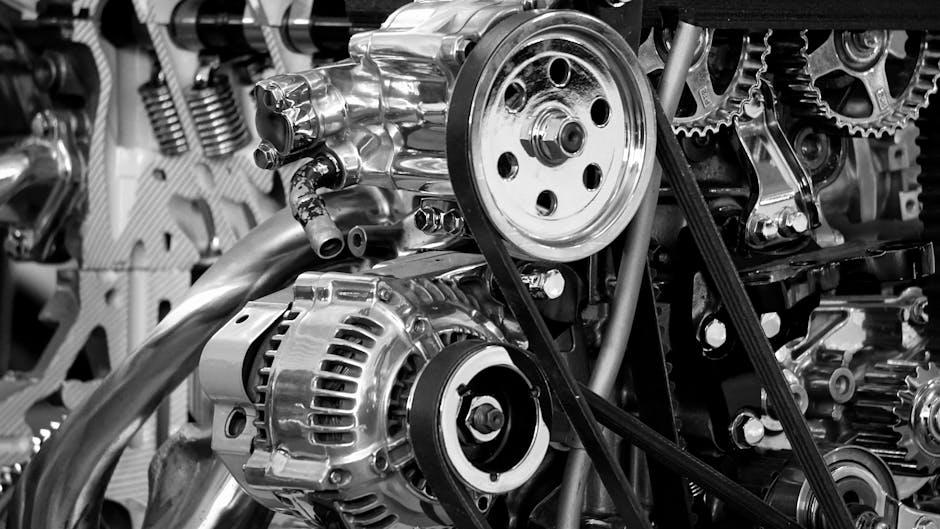
2 Comments
1606yh
1606yh